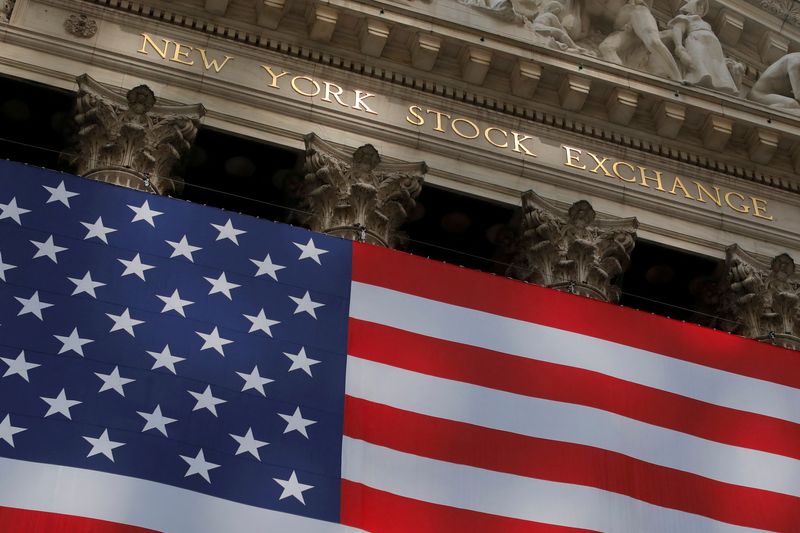By Saeed Azhar and Tatiana Bautzer
NEW YORK (Reuters) - Wall Street banks are raising billions of dollars to regain ground in lending to companies in debt-backed deals after giant private equity and asset management firms muscled in on the business over the last two years.
U.S. banks reduced lending to lower-quality corporate borrowers in 2022 as the Federal Reserve aggressively raised interest rates. Rising borrowing costs also derailed deal markets, particularly for transactions underpinned by high levels of debt.
Credit markets recovered after the Fed paused its monetary tightening late last year, encouraging banks to make a comeback in leveraged finance using their own capital and outside institutional money to expand private credit businesses.
The broader $1.5 trillion syndicated loan market has already seen a revival this year, according to Chris Long, founder and CEO of Palmer Square Capital Management, a Kansas City-based credit manager. The direct lending market is roughly half the size of the syndicated market, bankers estimate. Private equity firm KKR made a bid to buy healthcare technology firm Cotiviti Inc from Veritas Capital. Mounting competition to fund the potential deal highlights the overlapping relationships in the era of private credit. KKR, which on Wednesday agreed to buy a 50% stake in Cotiviti, was earlier in talks with both a syndicate of banks and a group of private creditors to finance a transaction that would value Cotiviti between $10 billion to $11 billion, sources familiar with the matter said.
KKR has mandated a syndicate of banks to finance the deal, one of the sources told Reuters on Wednesday. KKR declined to comment.
Meanwhile, private credit firms are entering into activities once dominated by regional banks. Broadening their lending businesses beyond financing deals, investment firms have entered consumer lending and real estate.
PacWest Bancorp last year sold a $3.54 billion lender finance portfolio to asset manager Ares Management (NYSE:ARES). KKR acquired a $373 million portfolio of prime auto loans from Synovus (NYSE:SNV) Bank and purchased $7.2 billion portfolio of super-prime recreational vehicle (RV) loans from a unit of BMO Financial Group. Markets for syndicated loans and private credit "are going to converge and will look more alike over time," said Kevin Foley, global head of debt capital markets at JPMorgan Chase (NYSE:JPM), the biggest U.S. lender. "It's not new to us," Foley said. "We are agnostic, we want the right solution for our clients." JPMorgan Chase has set aside $10 billion of its own capital for private credit, but that could grow significantly depending on demand, said sources familiar with the matter who declined to be identified discussing financial details. It has also received inquiries from potential partners seeking to put in private capital for lending, with the bank convening the deals, one of the people said. Private credit is "continuing to grow as you see more and more private equity firms choose that route to finance their deals," said Long, who opened a business development company focused on credit in January.
Financing volumes will be determined by mergers and acquisitions, and whether participants can agree on prices, said Foley at JPMorgan.
"We are seeing the gap between buyers and sellers expectations shrink, but it will also depend on conviction around the state of the economy," he said.
DIRECT LENDERS Banks in the syndicated loan market compete with direct lenders including private equity firms and others.
"Direct lenders have grown to a point where they can legitimately compete with the syndication banks for the biggest deals," said Greg Olafson, global head of private credit at Goldman Sachs. Goldman has been active in private credit for almost three decades, via mostly its asset management arm, which gathers client money and lends it out for a return. It aims to raise $40 billion to $50 billion in alternative funding this year, with private credit accounting for a large share of the total. Goldman raised $23 billion in private credit last year, and its asset and wealth unit manages $110 billion in private credit funds.
As investors and money managers take a greater role in lending, potential risks may be obscured because they are not as tightly regulated as banks, according to Ana Arsov, global head of private credit and financial institutions at Moody's (NYSE:MCO) Investors Service.
"Transparency is key, and we would like to see more information about the funding, in which balance sheets these credits are booked, and on the portfolio performance," she said. "It would be useful to compare delinquencies in the private credit space with the public syndicated loans."
Direct lending is also fueling new partnerships. Wells Fargo teamed up with private equity firm Centerbridge Partners to build a business focused on direct lending to midsize, family-owned and private companies in North America. "Our first thought was about how we give our middle market clients access to another form of financing for their most strategic and transformational transactions," said David Marks, executive vice president of Wells Fargo Commercial Banking. "It wasn’t about ‘how do we get into private credit?’ We decided to enter into this relationship with Centerbridge because our clients’ expectations were changing." Loans from private creditors often trade at a premium to traditional syndicated loans because the borrowers pose higher risks and underlying loans are harder to sell to other participants, industry executives and analysts said.

"There has been a consistent premium for private credit relative to public markets, averaging several hundred basis points, and it tends to tighten as the market gets bigger," David Miller, global head of private credit and equity at Morgan Stanley.
But in the long run, private credit markets will remain more expensive and less liquid than public markets, he said. "There is a limit to the compression of spreads."